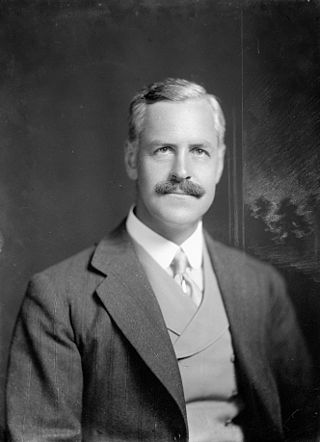Related Research Articles

The 1879 New Zealand general election was held between 28 August and 15 September 1879 to elect a total of 88 MPs to the 7th session of the New Zealand Parliament. The Māori vote was held on 8 September. A total of 82,271 (66.5%) European voters turned out to vote, plus 14,553 Māori voters. Following the election, John Hall formed a new government.

The 1896 New Zealand general election was held on Wednesday, 4 December in the general electorates, and on Thursday, 19 December in the Māori electorates to elect a total of 74 MPs to the 13th session of the New Zealand Parliament. A total number of 337,024 (76.1%) voters turned out to vote.

The 1928 New Zealand general election was held on 13 and 14 November in the Māori and European electorates, respectively, to elect 80 MPs to the 23rd session of the New Zealand Parliament.

Sir Thomas Mason Wilford was a New Zealand politician. He held the seats of Wellington Suburbs then Hutt continuously for thirty years, from 1899 to 1929. Wilford was leader of the New Zealand Liberal Party, and Leader of the Opposition from 1920 to 1925.

Eliza Ellen Melville was a New Zealand lawyer and politician. She was New Zealand's second female lawyer, and the first woman elected to a city council in New Zealand. She sat on the Auckland City Council for 33 years and was tireless in her work for women's organisations and causes, including in particular the National Council of Women of New Zealand. She believed in the importance of women participating fully and equally in public life, and was a key figure in the revival of the feminist movement in New Zealand after women's suffrage. She was one of the first women to stand for Parliament in New Zealand and ultimately stood (unsuccessfully) seven times.
The following lists events that happened during 1876 in New Zealand.
Franklin was a rural New Zealand parliamentary electorate. It existed from 1861 to 1996 during four periods.
Waitemata was a New Zealand parliamentary electorate, from 1871 to 1946, and then from 1954 to 1978. It was represented by 18 members of parliament.

Lewis McIlvride was a New Zealand Member of Parliament and trade unionist.
Patea is a former New Zealand electorate in south Taranaki. It existed from 1893 to 1963.
Franklin North was a parliamentary electorate in the southern part of the Auckland Region of New Zealand from 1881 to 1890.
Benjamin Harris was a 19th-century Member of Parliament in New Zealand. In 1893 he appears to have been a Liberal Party supporter.

William Francis Buckland was a 19th-century Member of Parliament in New Zealand, an independent conservative MP and cricketer.

The 14th New Zealand Parliament was a term of the New Zealand Parliament. It was elected at the 1899 general election in December of that year.
The 1954 Patea by election was held on 31 July during the 30th New Zealand Parliament, and was caused by the resignation of incumbent National MP, William Sheat.
The 1915 Bay of Islands by-election was a by-election held on 8 June 1915 during the 19th New Zealand Parliament in the Northland electorate of Bay of Islands. The by-election came about because Vernon Reed's win in the 1914 general election was declared void by an electoral court. The seat was won by William Stewart of the Reform Party. Reed, who was also of the Reform Party, was barred by the court from standing for election for 12 months.

The 1917 Bay of Islands by-election was a by-election held on 19 March 1917 during the 19th New Zealand Parliament in the Northland electorate of Bay of Islands. The by-election came about because Vernon Reed's win in the 1914 general election had been declared void by an electoral court, and Reed barred from standing for a year. The seat was won by William Stewart, Reed's Reform Party colleague, in the resulting 1915 by-election. When Reed became eligible again, Stewart resigned and Reed won the 1917 by-election unopposed.
The 1882 Wakanui by-election was a by-election held on 16 June 1882 in the Wakanui electorate during the 8th New Zealand Parliament.
Harrisville is a locality about 3 km northeast of Tuakau and 5.5 km southeast of Pukekohe in the North Island of New Zealand.
References
- ↑ "Franklin North Election". The New Zealand Herald . Vol. XIX, no. 6342. 16 March 1882. p. 6. Retrieved 19 June 2015.
- ↑ "Franklin Election". Patea Mail. 16 March 1882.
- ↑ "Franklin Election". Patea Mail. 16 March 1882.
- ↑ "Franklin Election". New Zealand Mail. 18 March 1882.
- ↑ "Franklin Election". Thames Advertiser. 17 March 1882.
- ↑ "Franklin Election". The New Zealand Herald . 17 March 1882.
- ↑ "Franklin Election". Auckland Star . Vol. XIII, no. 3702. 22 June 1882. p. 2. Retrieved 19 June 2015.